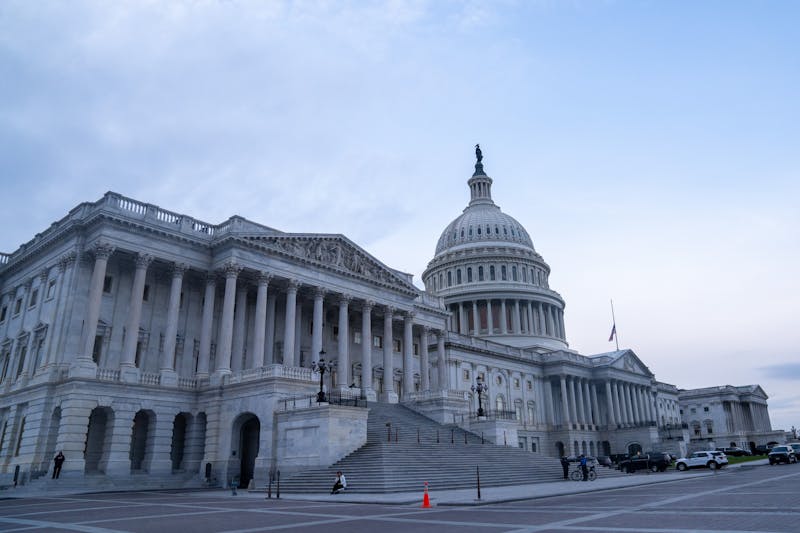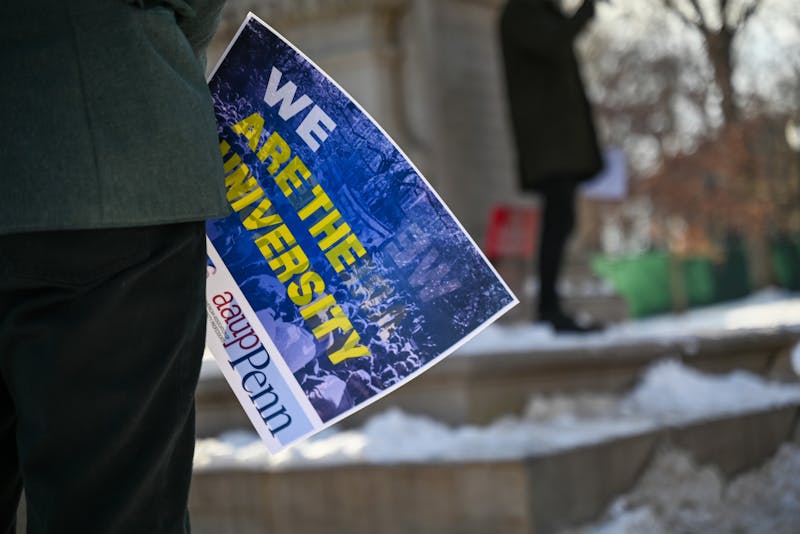
The latest edition of the Disorientation Guide, a publication that critiques political and social issues at Penn, was released on Aug. 26.
The guide is split into three separate sections, containing essays written on topics including Penn's response to the Israel-Hamas war and handling of issues such as sexual assault and climate change. Most authors are anonymous, but activist groups including Fossil Free Penn, Penn for PILOTs, Justice for Mackenzie, Police Free Penn, and Natives at Penn are attributed under some of the essays.
The Disorientation Guide team and a University spokesperson did not respond to requests for comment.
The first section, “Penn’s Complicity in the Gaza Genocide,” condemns Penn donors and trustees for propagating anti-Palestinian sentiment and relenting to trustee influence.
“[D]onors no longer just have control over the University’s image, but also over what knowledge its students are given access to,” an anonymous contributor wrote.
Contributors writing about the Israel-Hamas war also criticized the University’s new free expression guidelines, which have prohibited several forms of protests that occurred in the previous school year, such as encampments on University grounds and chalking on University surfaces.
“Penn in the World,” the second section, discusses the University's relationship with the broader community. This includes the University's unethical care of the remains of the Black victims of the MOVE bombing, its historical contributions to scientific racism and constitutional slavery, its refusal to address divestment from fossil fuel companies, and the negative financial implications of its tax-exempt status on local Philadelphia schools.
“Penn is an engine of destruction for profit, determined to make money with very little regard for how that affects people or the planet, communities or ecosystems,” Fossil Free Penn wrote in the Disorientation Guide.
The third section, "Penn’s Impacts on Students & Staff," addresses how Penn’s controversial policies have affected students and staff, detailing the University’s mishandling of sexual violence, aggressive campus policing policies, and historical exploitation of Native American communities.
Some contributors wrote about personal experiences, including one graduate of the School of Nursing. The former nursing student, who is anonymous, wrote on teaching practices within the Nursing School, saying the teaching prioritized legal compliance over patient-centric care and advocating for alternative ideologies.
In the Editor’s Letter, the guide’s editors emphasized the importance of “challenging” Penn’s “abuse of power.”
“[W]hen we act together and refuse to be silenced, we can leverage our power to demand change, to demand our university live up to its own values and act ethically in its relationship with students, faculty, the Philadelphia community, and the world,” they wrote.
The Daily Pennsylvanian is an independent, student-run newspaper. Please consider making a donation to support the coverage that shapes the University. Your generosity ensures a future of strong journalism at Penn.
Donate











